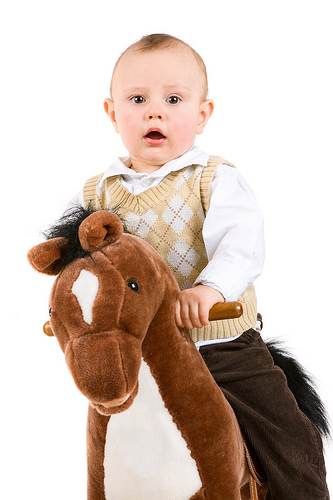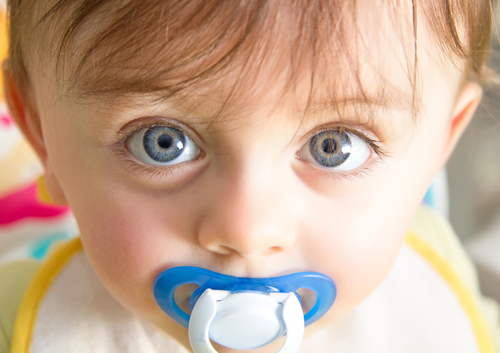September 24th, 2024

Dr. Robin E. Lents and our team know that cavities know no age boundaries, and that is why we recommend a visit to our Florence office by a child’s first birthday. That also happens to be the opinion of our friends at the American Academy of Pediatrics, as well as the American Dental Association.
Research has shown that more than one in four kids has had at least one cavity by the time they’re four years old. In fact, many children get cavities as early as age two, which is a critical reason why you should pay us a visit sooner rather than later. Your child’s appointment at Shoals Pediatric Dentistry, PC also covers topics such as the importance of baby teeth, nutrition, development, and any concerns you may have with your child’s dental health. We believe that your child’s first visit with Dr. Robin E. Lents should be an enjoyable and positive one, and we strive to teach good oral care that will enable your child to have a beautiful smile that lasts a lifetime.
To learn more about baby teeth, or to schedule your child’s next visit with Dr. Robin E. Lents, please give us a call today! We look forward to seeing you!
September 4th, 2024

It’s a busy time of year. Book lists! Supplies! New clothes! (How did they outgrow those shoes already?) And while you’re preparing your family’s list of back-to-school necessities, here are a few essential reminders to help your child begin the school year with a healthy smile.
It never hurts to review the basics before the start of the school year, and that holds true for dental care as well! Make sure your child is brushing two minutes twice a day, and using floss or another interdental tool to clean between the teeth. If his toothbrush has been in use since the end of the last school year, it’s probably time to replace it. Bristles are at their best for about three months—after that, they become frayed and worn, and can’t remove plaque as effectively.
- School Supplies for Braces Wearers
If your child is going to school with braces for the first time, send her off with the tools she needs. A travel-sized toothbrush and tube of toothpaste are perfect for a quick brushing after lunch, while dental floss and a threader or dental picks will take care of any after-lunch particles lurking in brackets and wires. Orthodontic wax is a great product to have on hand if a wire or bracket is causing irritation. If your child uses clear aligners or a retainer, make sure a protective case is always close by, ready to use every time the appliance is removed. And it’s a good idea to include the number of your dentist and orthodontist in her contacts in case of emergency.
If your school requires a dental exam before the start of classes, be sure to make your appointment at our Florence office now! Regular checkups with Dr. Robin E. Lents are vital for preventing small problems from becoming bigger ones, and a professional cleaning will remove the plaque even careful brushing can miss.
A positive, confident start can set the tone for the academic year, so your homework might include monitoring summer reading, providing required supplies, and making sure your child is well-rested and ready to go. You can also help your child to a positive, confident start by monitoring brushing habits, providing the necessary tools for appliance-wearers, and making sure your child is up-to-date with dental exams and cleanings. Because entering the classroom with a beaming, healthy smile—that’s an A+ way to begin the school year!
August 28th, 2024

Labor Day, celebrated on the first Monday each September here in the United States, is a holiday devoted to the American working community. The purpose of the holiday is honoring the country's workers and their contributions to the strength of our country as a whole.
How Labor Day Started
There is actually some debate as to the origins of Labor Day. It is uncertain whether Peter McGuire, a cofounder for the American Federation of Labor, or Matthew Maguire, who was the secretary of Central Labor Union of New York, had the great idea. However, the Central Labor Union's plans were what launched the first Labor Day in America.
The First Labor Day
The very first Labor Day was celebrated on September 5th, 1882. The Central Labor Union then held annual celebrations on September 5th for what they called a working man's holiday. By the year 1885, the Labor Day celebration had spread to many different industrial areas, and after that it began spreading to all industries in the United States.
Labor Day Today
Labor Day today is a huge United States holiday during which we honor the country's workers with a day of rest and relaxation or a day of picnics and parades. This holiday is truly one to honor the many people who work hard to contribute to the economic well-being of our great country!
Our team at Shoals Pediatric Dentistry, PC hopes all of our patients celebrate Labor Day, and every holiday, safely and happily. Whether you stay in the Florence area, or travel out of town, have fun, and don't forget to brush!
August 21st, 2024

Children are born with a natural sucking reflex. In fact, sonogram images from the womb often reveal an unborn baby practicing by sucking on his or her fingers or thumb. Not only does sucking aid in your baby’s ability to acquire food and nutrients, but it is also a security and possible analgesic outside of meal times.
Though it is both normal and beneficial for parents to soothe their children with pacifiers during infancy, long-term use could interfere with oral health and development. Most children will stop using a pacifier on their own. However, the American Academy of Pediatric Dentistry recommends halting pacifier use after age three. Prolonged thumb sucking or pacifier use after this time can cause the upper front teeth to begin to lean outward. It can also cause new teeth to erupt crookedly, and it can negatively affect jaw alignment.
If your child is not showing signs of self-weaning by age two, you may begin the process by limiting pacifier usage to specific times, such as nap time or when getting vaccinations. Offer an alternative security item, such as a blanket, and be sure to praise your child when he or she chooses the blanket over the pacifier.
Tips
- Never under any circumstances should you dip your baby’s pacifier in something sweet. Though it is a tempting way of encouraging your child to take a pacifier when crying, it can also lead to early childhood tooth decay.
- If your child has not discontinued pacifier use by age three, talk with Dr. Robin E. Lents about behavioral modifications or appliances that can help your child wean.
- Never use negative reinforcement to discourage pacifier use. Punishment for pacifier use is not effective for changing your child’s habits.
If you have any questions or concerns about your child’s pacifier usage or which types of pacifiers are best for your child’s oral health, please give our team at Shoals Pediatric Dentistry, PC a call at our convenient Florence office!





 Website Powered by Sesame 24-7™
Website Powered by Sesame 24-7™